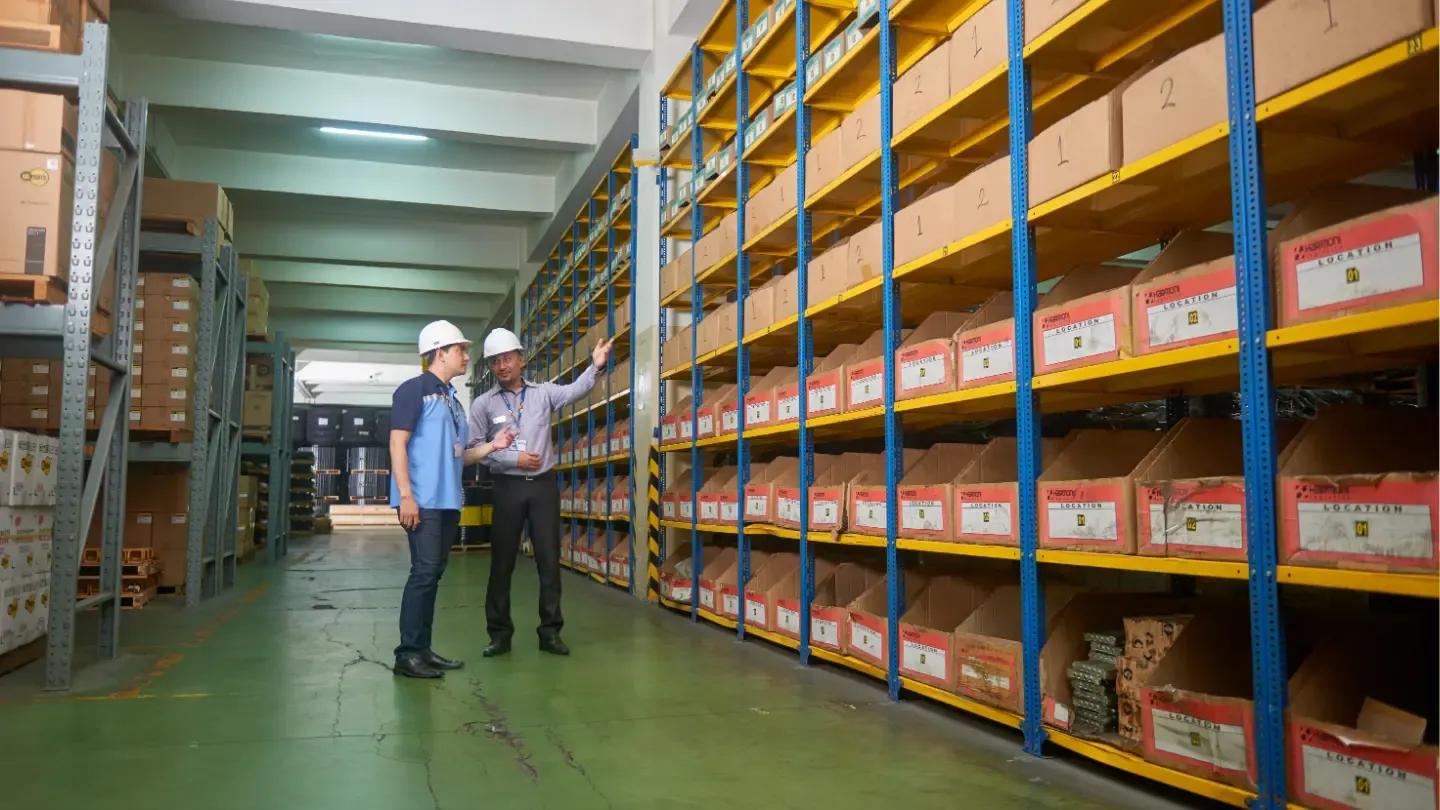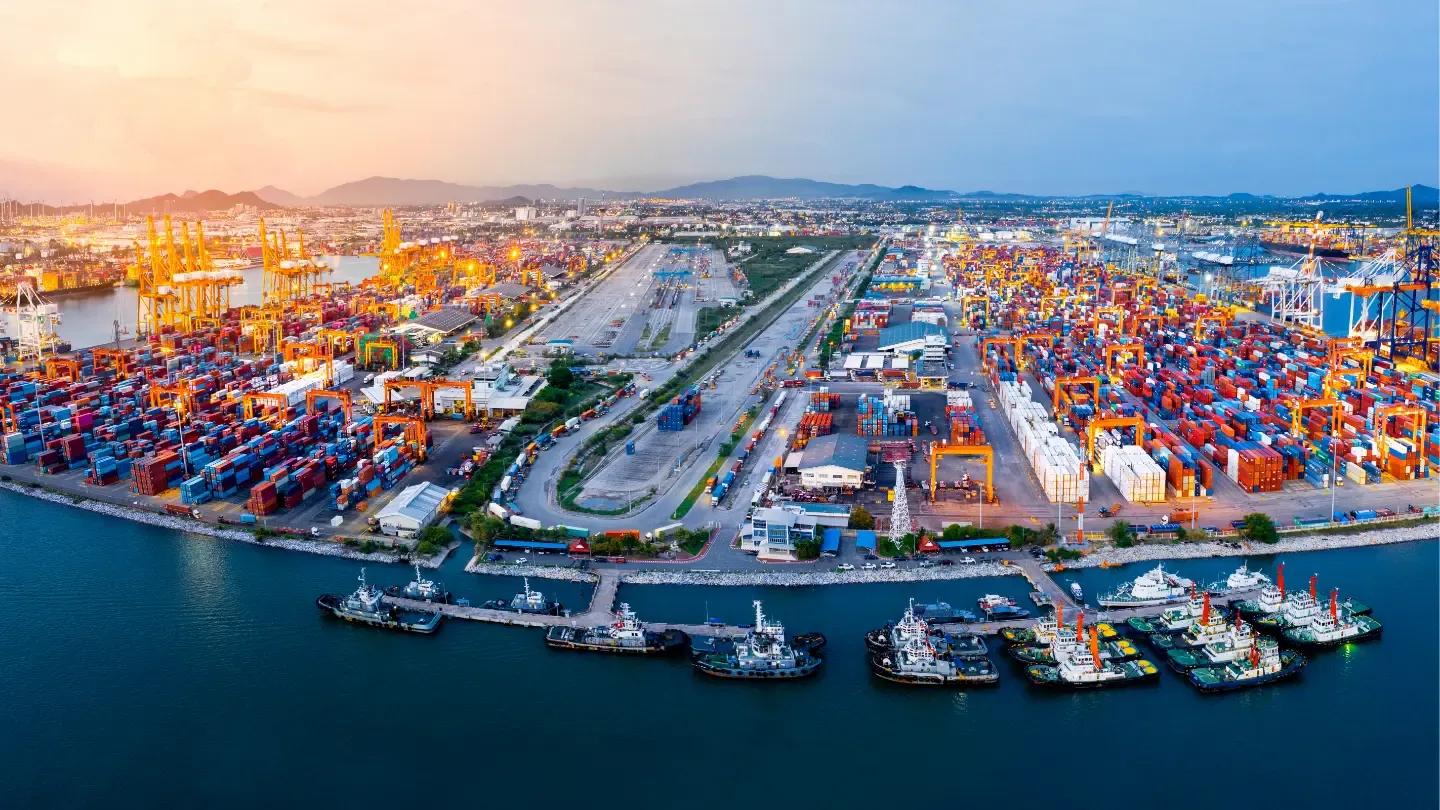
Information & Tips
4 Juni 2025
5 Logistics Challenges in the Automotive Industry
The year 2025 poses numerous challenges to the automotive industry, from taxation and government incentives to difficulties in spare parts restocking.
Spare parts restocking is an important part of maintaining customer satisfaction and ensuring the continuous operation of auto repair shops and dealerships.
This is where the logistics sector becomes key. It handles the transportation of spare parts from suppliers to auto repair shops and dealerships.
This seamless flow of goods is essential for driving the national economy and supporting countless livelihoods.
Efficient logistics also powers the vehicle production and distribution processes, helping ensure customer satisfaction. Here are some of the main logistics challenges in the automotive industry:
1. On-Time Availability of Correct Spare Parts
The tardiness in shipments or errors in part specifications can seriously hamper workshop operations.
An auto repair shop would face significant trouble when repairing a customer’s vehicle if the required spare parts (such as those for engines or braking systems) are unavailable or incorrectly delivered. It may cause:
Repair Postponement: The vehicle repair process takes longer than it should, leading to customer dissatisfaction and a potential switch to another repair shop.
Financial Loss: The repair shop cannot finish the job on time, causing delayed or lost income opportunities.
Reputation Damage: Tardiness and repeated errors can damage a workshop or dealer's reputation.
Operational Disruption: The auto repair shop operations become inefficient due to having to wait for the spare parts to arrive or return the wrong ones.
2. Demand Surge
Demand for automotive spare parts tends to be volatile, with noticeable surges during the following periods:
High Season: As the holiday season approaches, the demand for vehicle service and repairs usually increases significantly as many people prepare their vehicles for long trips.
Particular Service Demand: A manufacturer's recall campaign, seasonal service program, or mass damage caused by a natural disaster can trigger demand spikes for a particular part.
New Vehicle Trends: The launch of a new vehicle model can increase the demand for particular spare parts, especially fast-moving parts or accessory components.
3. Shipments to Multiple Locations Simultaneously
Automotive businesses often have extensive distribution networks, comprising numerous auto repair shops and dealerships across various regions. Managing the spare parts shipment to these destinations efficiently presents complex logistics challenges, including:
Intricate Logistics Coordination: Arranging shipments from distribution centers to multiple locations on varying schedules requires careful coordination.
Limited Shipping Visibility: Without a reliable tracking system, it is difficult to monitor the shipment status to each location and ensure parts arrive on time.
Potential for Tardiness and Errors in Shipment: The risk of tardy shipment or incorrect location increases with many destination locations.
High Transportation Costs: Shipments to multiple distant locations can raise transportation costs significantly.
4. Storage Constraints
Many auto repair shops, especially small- and medium-sized ones, have limited storage space. Automotive spare parts also vary in size, from small to large. The challenges for storage include:
Space Limitations: The limited storage space forces the auto repair shops to limit their stock or organize storage space inefficiently.
Handling of Various Sizes of Spare Parts: Large parts or those requiring special handling (like batteries or chemical fluids) need dedicated storage space and equipment.
Risk of Damage and Loss: Unsystematic and improper storage may increase the risk of damage (e.g., rust, breakage) or loss of spare parts.
Space and Budget Inefficiencies: Excess stock can take up storage space and tie up capital, while understock can hamper operations.
5. High Logistics Costs
Distributing automotive parts, especially heavy and large components, can incur significant logistics costs, which include:
Transportation Cost: Shipping costs, fuel, tolls, and other costs related to spare parts transportation.
Warehouse Cost: Warehouse rental costs, warehouse operations (electricity, labor), and other storage costs.
Material Handling Cost: Costs for spare parts loading, unloading, transporting, and packing.
Administration and Insurance Cost: Shipping administration costs, documentation, and shipping insurance.
Facing the challenges of restocking spare parts in the automotive industry requires a comprehensive and integrated strategy.
By implementing the above solutions, automotive businesses can improve operational efficiency, reduce costs, increase customer satisfaction, and strengthen competitiveness in the market.
The solution is choosing a reputable logistics company that combines professionalism, effectiveness, and efficiency, while providing a one-stop solution for the customers’ needs.
SELOG Logistics Solutions
One such company is SELOG, a business line of PT Serasi Autoraya (SERA), which is also part of the Astra Group, with over 20 years of experience in the logistics industry.
SELOG provides end-to-end logistics services, from Trucking, Shipping, Freight Forwarding, Warehousing, and Project Cargo.
Every SELOG’s services are supported by the latest digital technology, including the Astra Fleet Management Solution (AstraFMS), which is not only convenient but also effective and efficient for businesses.
With AstraFMS technology, SELOG provides comprehensive IT-based solutions for transportation management in Indonesia.
For more information about SELOG’s services, visit www.selog.astra.co.id or contact (021) 26605333.

Information & Tips
4 Juni 2025
Things to Look For When Using a Shipping Agency

Information & Tips
4 Juni 2025
LCL Explained: What It Means in the Logistics Industry

Information & Tips
4 Juni 2025
Warehouse: Understanding Its Types and Functions

Information & Tips
4 Juni 2025
What Makes a Warehouse Ideal for Storing Stock

Information & Tips
4 Juni 2025
Stevedoring: A Vital Component of Port Logistics

Information & Tips
4 Juni 2025
Common Challenges in International Shipping

Information & Tips
4 Juni 2025
Your Guide to Choosing the Ideal Freight Forwarding Partner

Information & Tips
4 Juni 2025
Long-Haul Trucks Explained: Backbone of Long-Distance Shipping

Information & Tips
4 Juni 2025
How Logistics Powers the Automotive Industry

Information & Tips
8 Mei 2025
Selecting the Right Logistics Company: Practical Tips
Make sure you have the latest SELOG and Logistics information updates
Please enter your email to get the latest news or articles from us.
